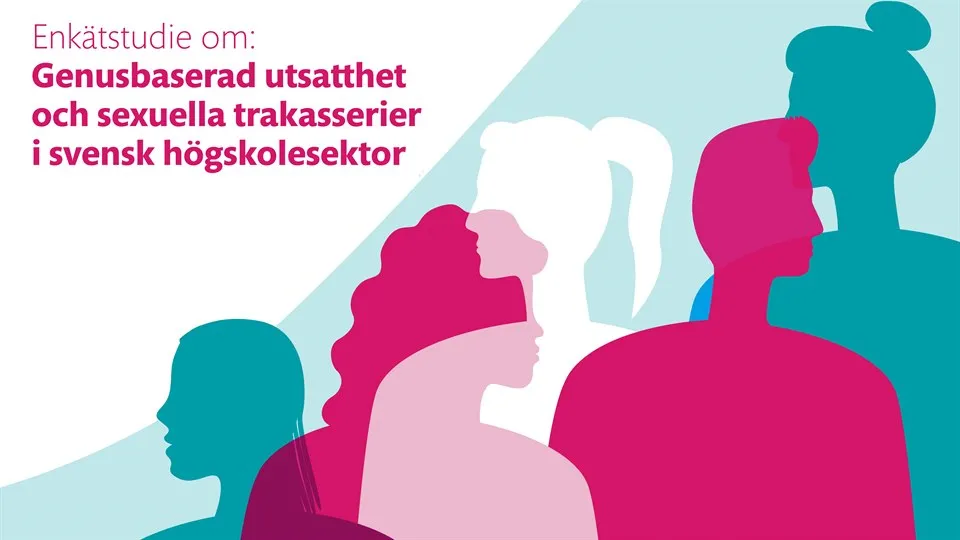National study on gender‑based violence in academia
For the first time, Swedish universities and colleges have conducted a joint and national research study on the prevalence of gender-based vulnerability and sexual harassment in academia. Today, the first report was presented.
In total, nearly 39,000 employees, doctoral students and students have responded to the survey. The answers show that young people, women, students and doctoral students are particularly vulnerable.
About four per cent of employees, doctoral students and students at 38 of the country’s higher education institutions state on a single issue that they have been exposed to “undesirable sexual attention at work/place of study” in the last 12 months. However, the extent of vulnerability varies from one category to another. Among students who are women, six per cent say they have been exposed in the last 12 months, while the corresponding figure for employed men is two per cent.
− It is very good that the academy has initiated the study. The results show that this social problem also exists in our sector to approximately the same extent as in other industries, which confirms the picture we have from our own surveys since before. Mid Sweden University follows the national trend and reports roughly the same figures as the sector in general, but the most important thing is not individual figures, but how we embrace the results and continue to work, says Eva Dannetun, Pro Vice-Chancellor.
Mid Sweden University’s figures are based on responses from just under 1,100 employees and students where the response rate among employees has been high, while the proportion of students who answered is low.
The study is part of the joint research and collaboration programme started in 2018, as a result of the MeToo calls, and is run by KTH, Karolinska Institutet (KI), Malmö University and the National Secretariat for Gender Research (Gothenburg University). The aim is to increase knowledge about the prevalence of gender-based vulnerability and sexual harassment in the higher education sector, analyse underlying causes and thus create better opportunities to counter harassment, bullying and other unwanted and inappropriate behaviors.
− We work continuously with this by educating managers, employees and students on equal terms issues, both faculties and administration have equal terms and conditions representatives and there is a strategy group dealing with these issues. There are guidelines against abusive discrimination, discrimination, sexual harassment and retaliation, and each manager has a responsibility to follow up on them, says Lasse Reinikainen, coordinator for equal opportunities and gender mainstreaming.
− The Student Union in Östersund looks positively on the extensive study that has been done. Highlighting these very important issues is a matter of course and the result shows how obvious it is that the work on these issues continues. As a student there is a risk of ending up in vulnerable situations and then there should be clear structures to work towards it. Combating harassment and bullying is a priority area and we work with these issues centrally with Mid Sweden University, says Emanuel Magnusson, Chairman of the Student Union in Östersund.
− The steering group for the entire research programme states in its report that, despite several decades of preventive work, we need to increase the level of ambition in several ways and I fully agree with this. We do — and have done — a lot, but we absolutely want to do even more. Zero tolerance applies, says Eva Dannetun.
